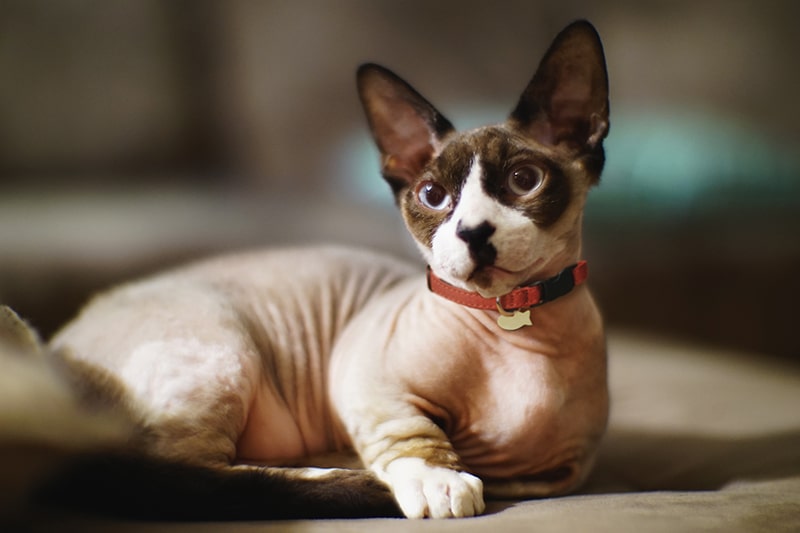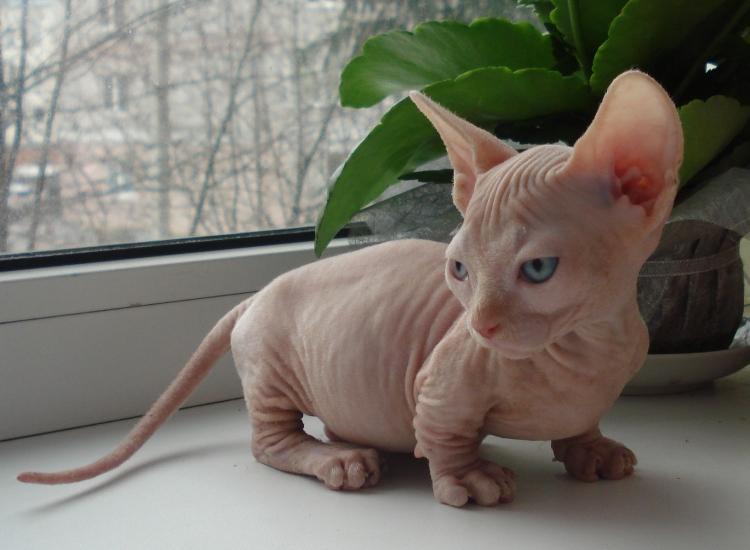Bambino cats are a delightful combination of charm and uniqueness, captivating the hearts of cat enthusiasts worldwide. Renowned for their striking appearance and playful personalities, these cats have become increasingly popular due to their fascinating history and endearing nature. In this article, we will explore the enchanting world of Bambino cats, uncovering their traits, care needs, and why they make such wonderful companions.
As a relatively new breed, Bambino cats possess a special allure that distinguishes them from more conventional feline companions. Their short legs and playful demeanor not only make them irresistibly adorable but also incredibly entertaining to have around. Whether you're an experienced cat owner or someone considering adopting your first pet, gaining a deeper understanding of the Bambino breed can help you make an informed decision.
In the sections that follow, we will delve into the origins of Bambino cats, their physical characteristics, personality traits, and essential care tips. By providing a thorough exploration of this breed, you'll gain valuable insights into the unique qualities that make Bambino cats so cherished.
Read also:Discover The World Of Wwwmasa49com Your Gateway To Reliable Information
Table of Contents
- The Origins of Bambino Cats
- Distinctive Physical Characteristics
- Engaging Personality Traits
- Comprehensive Care Requirements
- Important Health Considerations
- Adopting a Bambino Cat
- Conclusion
- References
The Origins of Bambino Cats
Bambino cats are a fascinating hybrid breed that emerged from the combination of the Sphynx and Munchkin cats. First developed in the early 2000s in the United States, this unique breeding process aimed to create a cat with the hairless features of the Sphynx and the short-legged charm of the Munchkin. The result is a playful, affectionate, and distinctive feline that has rapidly gained admiration among cat lovers.
Historical Background
The development of the Bambino breed began when breeders recognized the potential of blending these two remarkable breeds. The first Bambino cats were born in 2005, and their creation marked a significant milestone in feline breeding. Officially recognized by The International Cat Association (TICA) in 2006, the Bambino breed quickly established itself as a beloved addition to the cat world.
Development of the Breed
As the Bambino breed continued to evolve, breeders focused on refining its unique characteristics. Through careful breeding practices, they achieved a harmonious balance between the physical traits of both parent breeds. This dedication has resulted in a breed celebrated for its playful nature, affectionate temperament, and striking appearance.
Distinctive Physical Characteristics
Bambino cats are instantly recognizable due to their one-of-a-kind appearance. Several defining physical traits set them apart from other cat breeds:
- Short Legs: One of the most notable features of Bambino cats is their stubby legs, inherited from the Munchkin breed.
- Hairless Coat: Like the Sphynx, Bambino cats are mostly hairless, though they may have a fine fuzz on their skin that gives them a suede-like texture.
- Large Ears: Their oversized, bat-like ears enhance their expressive and curious look.
- Round Face: Bambinos boast a round face with prominent cheekbones, contributing to their endearing appearance.
- Expressive Eyes: Their large, captivating eyes come in a variety of colors, adding to their playful and inquisitive nature.
Engaging Personality Traits
Bambino cats are renowned for their lively personalities and engaging behavior. They are often described as affectionate, social, and highly intelligent. Below are some key personality traits that define this captivating breed:
- Affectionate: Bambino cats are known for their loving nature and enjoy forming strong bonds with their human companions.
- Playful: Their energetic demeanor makes them ideal companions for families, as they require regular interaction and mental stimulation.
- Intelligent: Bambinos are quick learners and thrive on engaging in mentally stimulating activities, such as puzzle toys and interactive games.
- Social: These cats love social interaction and often get along well with other pets, making them a great fit for multi-pet households.
Comprehensive Care Requirements
Caring for a Bambino cat involves understanding and addressing their unique needs. Below are some essential care tips to ensure your Bambino cat remains healthy and happy:
Read also:Mastering Financial Stability Your Ultimate Guide To Saving Money
Dietary Needs
Bambino cats require a balanced diet rich in high-quality protein to support their overall health and well-being. It's important to choose premium cat food that meets their specific nutritional requirements. Always consult with a veterinarian to determine the best dietary plan for your Bambino cat.
Grooming
Despite their hairlessness, Bambino cats still need regular grooming. Since they lack fur, their skin produces natural oils that can accumulate and cause skin issues. Bathing them weekly or bi-weekly helps keep their skin clean and healthy. Additionally, their large ears may require frequent cleaning due to increased wax buildup.
Exercise and Playtime
Given their playful and energetic nature, Bambino cats require regular exercise and mental stimulation. Providing interactive toys, climbing structures, and daily play sessions will keep them engaged and entertained. A happy Bambino cat is an active and stimulated one.
Regular Veterinary Check-Ups
Scheduling routine veterinary check-ups is crucial for maintaining your Bambino cat's health. Regular vaccinations, dental care, and health screenings can help detect and prevent potential health issues. Early detection is key to ensuring a long and healthy life for your feline friend.
Important Health Considerations
Like any breed, Bambino cats may be prone to certain health conditions. While they are generally healthy, they can inherit some genetic predispositions from their parent breeds. Below are some health concerns to be aware of:
- Heart Disease: Bambino cats may be at risk for hypertrophic cardiomyopathy (HCM), a common heart condition in cats. Regular heart screenings are recommended.
- Skin Issues: Due to their hairlessness, Bambino cats are more susceptible to skin infections and irritations. Monitor their skin closely for any signs of lesions or discomfort.
- Joint Problems: Their short legs can increase the likelihood of joint issues, so maintaining a healthy weight is vital to reduce strain on their joints.
Adopting a Bambino Cat
If you're considering adopting a Bambino cat, it's important to find a reputable breeder or rescue organization. Below are some tips to help you make an informed decision:
- Research Breeders: Look for breeders who are registered with recognized organizations and prioritize the health and well-being of their cats.
- Ask Questions: Don't hesitate to inquire about the cat's health history, socialization practices, and living conditions. A responsible breeder will be transparent and provide detailed information.
- Consider Adoption: Check local shelters and rescue organizations for Bambino cats in need of loving homes. Adoption can be a rewarding way to give a cat a second chance at happiness.
Conclusion
Bambino cats are a truly unique and enchanting breed that can bring immense joy and companionship to any household. Their playful nature, affectionate demeanor, and striking physical traits make them exceptional pets for families and individuals alike. If you're considering welcoming a Bambino cat into your home, understanding their care requirements and health considerations is essential for ensuring a fulfilling and healthy life together.
We invite you to share your thoughts about Bambino cats in the comments section below. If you found this article helpful, consider sharing it with fellow cat enthusiasts or exploring more articles on our site.
References
For further reading and to verify the information provided in this article, consult the following reputable sources:
- The International Cat Association (TICA)
- American Veterinary Medical Association (AVMA)
- Cat Fanciers' Association (CFA)
- Various veterinary journals and publications on feline health


